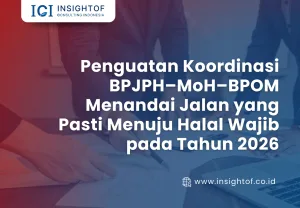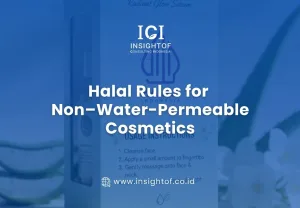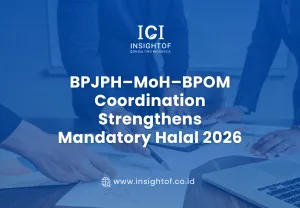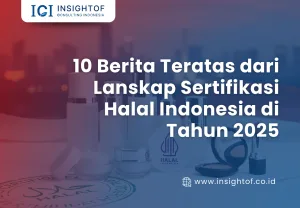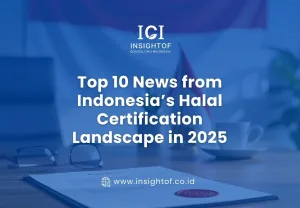1. Adhesive Bandage as a Medical Device
Adhesive bandages, commonly known as Band-Aid or Hansaplast, are among the most widely used first-aid medical devices in Indonesia. They are designed to protect minor wounds, prevent infection, and support the healing process by keeping the affected area clean and covered.
In Indonesia, adhesive bandages are officially classified as medical devices under the Ministry of Health (Kemenkes RI). Specifically, they fall under the non-electromedical, non-sterile Class 1A (low-risk) category, which must comply with national safety and quality standards before being distributed on the market.
Every distributor intending to sell this product must ensure compliance with applicable medical device quality standards and obtain an official Medical Device Distribution License Number (NIE) issued by Kemenkes before placing the product on the market.
- Adhesive Bandage
- Category: General and Personal Hospital Equipment
- Subcategory: General and Personal Therapeutic Hospital Equipment
- Risk Class: Class 1A (low risk)
- Classification: Non-electromedical, non-sterile medical device
⚠️ Note: This is the most common classification. Depending on the product’s specific features, materials, or functions, the classification may vary.
Common brands include Hansaplast, Nexcare (3M), and Elastoplast, which are widely available in pharmacies, hospitals, and retail stores across Indonesia.
2. Why Adhesive Bandage Must Be Registered
Even though they are considered low-risk, adhesive bandages must still be registered to obtain a Distribution License Number (Nomor Izin Edar – NIE) from the Ministry of Health (Kemenkes RI).
Registration ensures that every product distributed in Indonesia:
- Complies with Good Manufacturing Practices (GMP) and ISO 13485.
- Uses materials that are safe, biocompatible, and traceable.
- Meets labeling and packaging standards for consumer safety.
Any manufacturer or importer distributing adhesive bandages without NIE approval may face legal sanctions or product recall.
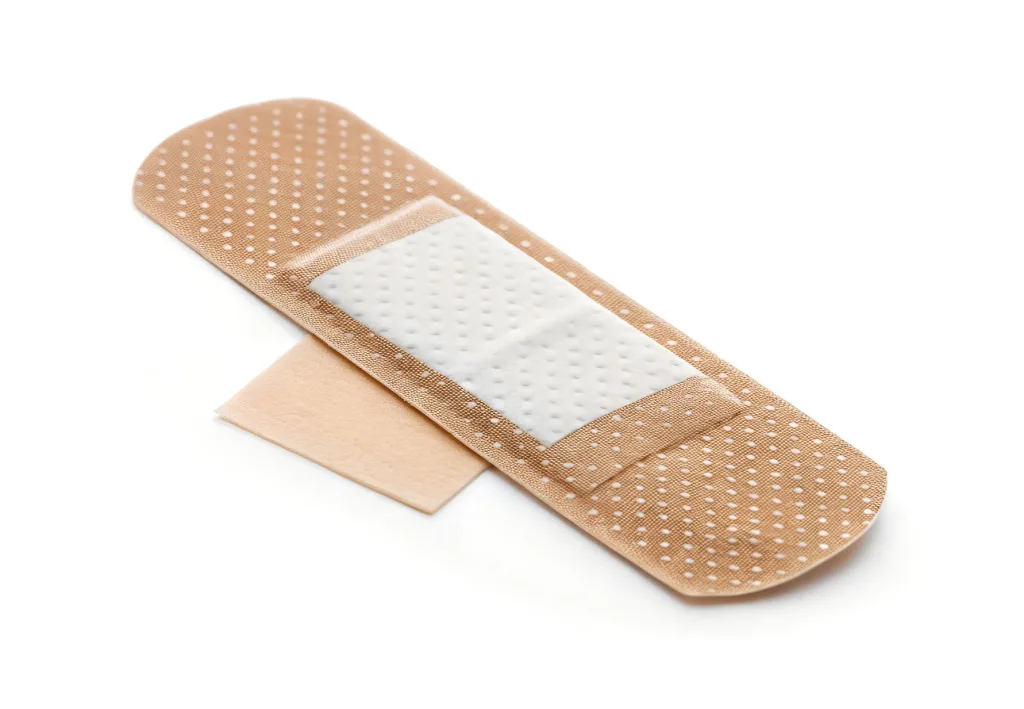

3. Medical Device Registration Process in Indonesia
The registration process for medical devices, including eyeglass lenses, is carried out through the official online system called Regalkes (Registrasi Alat Kesehatan & PKRT Online).
Key Registration Steps:
- Determine Device Classification
Confirm the risk class (Adhesive bandages are Class 1A). - Prepare Technical Documentation
Include product specifications, labeling samples, ISO 13485 certificate, Free Sale Certificate (if imported), and declaration of conformity. - Submit via Regalkes (Online Portal)
Upload documents and pay the applicable PNBP (non-tax state revenue) fee. - Evaluation and Approval
The Ministry of Health reviews the submission and, upon approval, issues the Distribution License Number (NIE), allowing legal marketing in Indonesia.

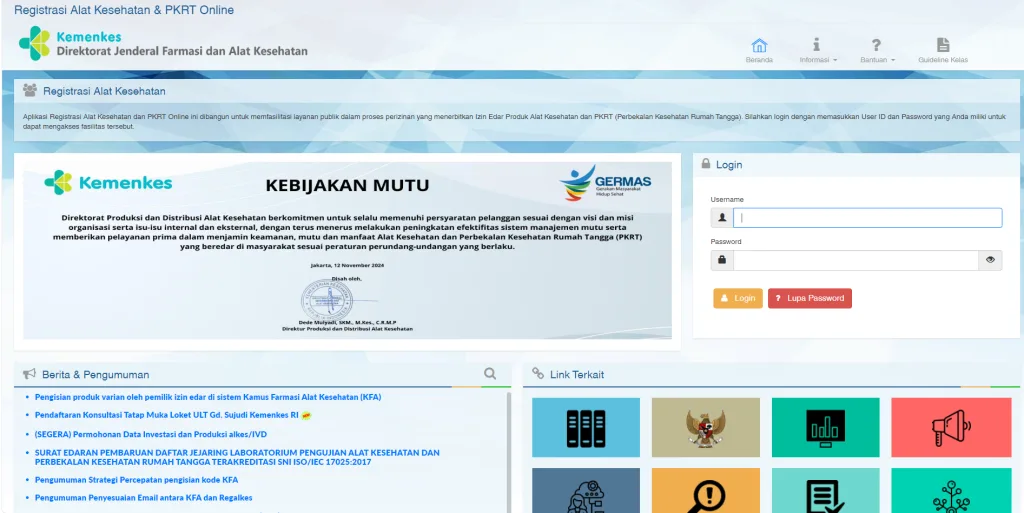
4. Halal Certification Requirement for Class 1A Medical Devices
Under Law No. 33 of 2014 on Halal Product Assurance and Government Regulation No. 39 of 2021, all Class 1A medical devices, including adhesive bandages, are required to obtain Halal Certification.
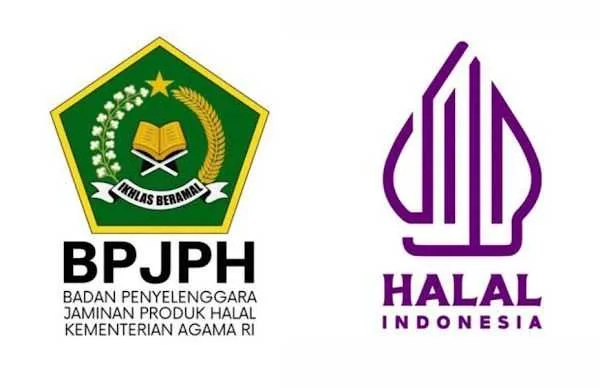
This regulation ensures that all materials, production processes, and packaging are free from non-halal substances — especially important for products that come into direct contact with the human body.
| Medical Device Class | Mandatory Halal Certification Deadline |
|---|---|
| Class A (low risk) | October 17, 2026 |
| Class B (medium risk) | October 17, 2029 |
| Class C (high risk) | October 17, 2034 |
| Class D (very high risk) | October 17, 2039 |
5. Halal Certification Process for Adhesive Bandages
The Halal Product Assurance Agency (Badan Penyelenggara Jaminan Produk Halal – BPJPH), under the Ministry of Religious Affairs of the Republic of Indonesia, is the competent authority responsible for administering halal certification in accordance with Law No. 33 of 2014 on Halal Product Assurance and its implementing regulations. The assessment process is carried out in cooperation with accredited Halal Inspection Bodies (Lembaga Pemeriksa Halal – LPH).
- Raw Material Assessment
Each material used — such as cotton, elastic fibers, adhesives, fasteners, and dyes — must come from halal-certified or plant-based sources. No materials derived from pigs, non-halal animals, or alcohol-based adhesives are allowed. - Production Process Evaluation
The manufacturing process is reviewed to ensure there is no contamination with non-halal materials. This includes examining storage, cleaning, and handling procedures to maintain purity throughout the production chain. - Facility Inspection
The production facilities must implement and maintain a Halal Assurance System (SJPH), which includes internal control mechanisms, documented procedures, and staff training to consistently uphold halal integrity. - Halal Audit and Certification
An accredited LPH conducts an on-site audit and laboratory analysis if necessary. Once all requirements are met, BPJPH issues a Halal Certificate that is permanently valid, provided there are no changes to raw materials, suppliers, or manufacturing processes. - Renewal and Monitoring
Before the certificate expires, the manufacturer must apply for renewal and undergo re-evaluation. BPJPH and LPH may also conduct random inspections to ensure continuous compliance.

6. Product Labeling Requirements for Eyeglass Lenses
Labeling plays a crucial role in medical device distribution. Based on Minister of Health Regulation No. 62 of 2017 concerning Advertising and Labeling of Medical Devices, product labels must provide accurate, clear, and non-misleading information for both consumers and distributors.
Label Placement
Labels should be affixed to the outer packaging, such as the box, plastic wrap, or sachet that contains the adhesive bandages.
⚠️ Important note: Labels must not be attached directly to the fabric surface of the bandage, as this may damage the material or reduce its elasticity.
Example of Label Format
Product Name: INSIGHT Plaster
Manufacturer: ABC Medical Co., Ltd., Korea
Distributor: PT Insight Medika Indonesia, Jakarta
KEMENKES RI: AKL 1234567890123
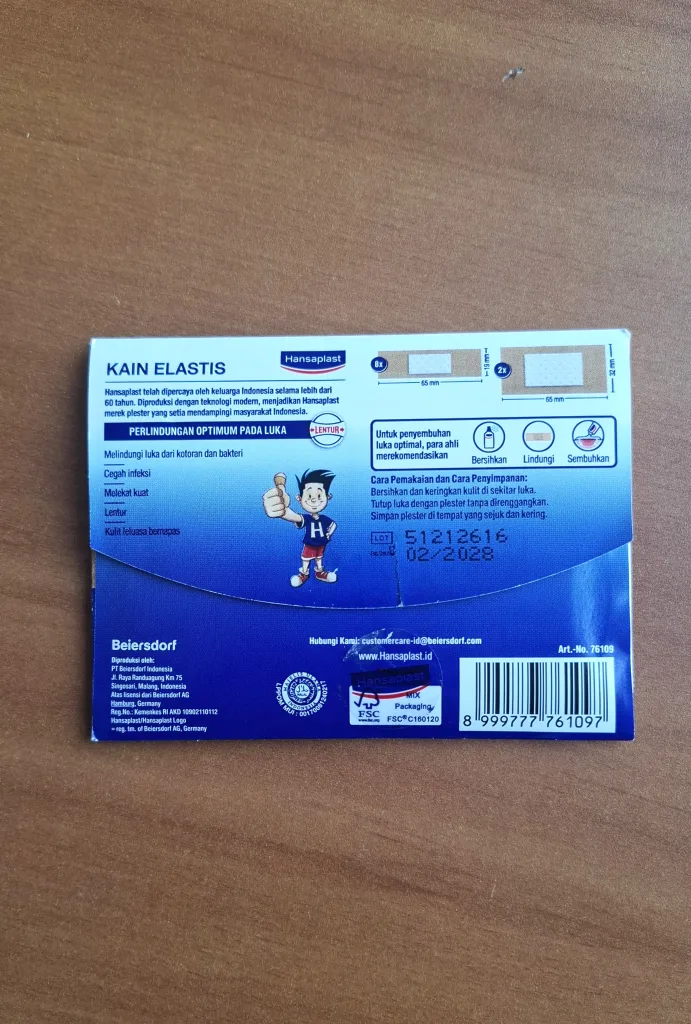
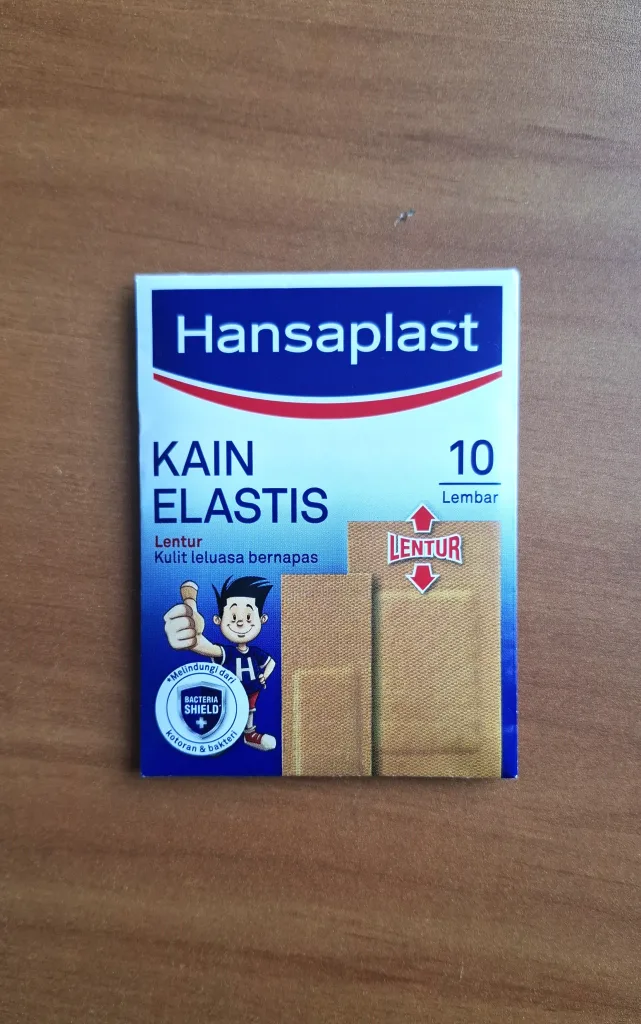
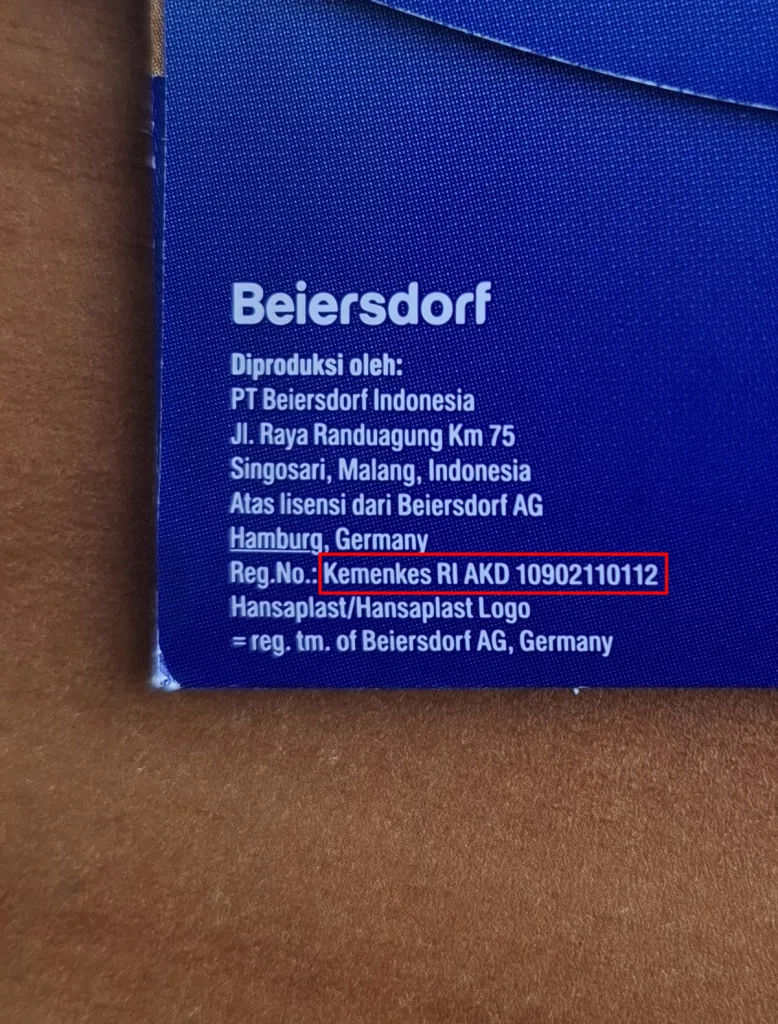
Once halal certification is obtained, the official BPJPH Halal Logo must appear on the packaging. It must not be modified in size, color, or shape.
Halal Label
Once a product has obtained a Halal Certificate, the manufacturer or importer must display the official Halal Logo on the product packaging. The logo must not be altered in color, shape, or proportion, and it must be placed in a visible area on the primary or secondary label.
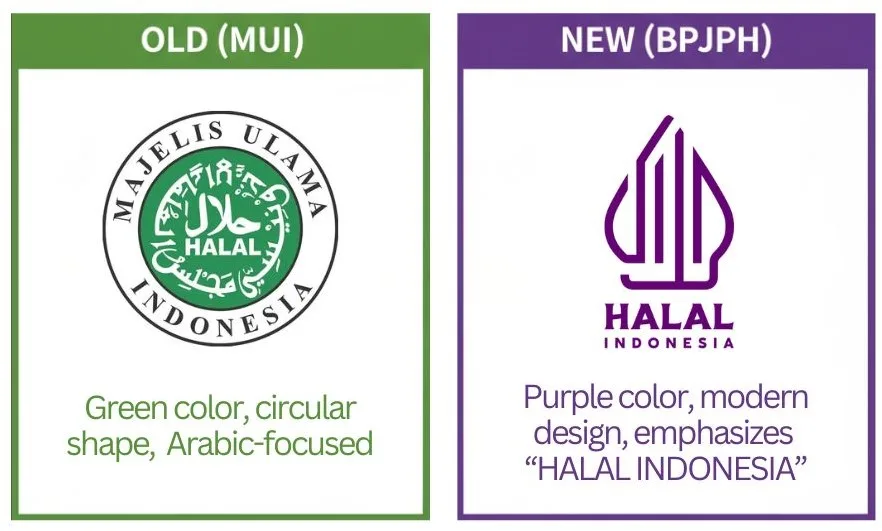
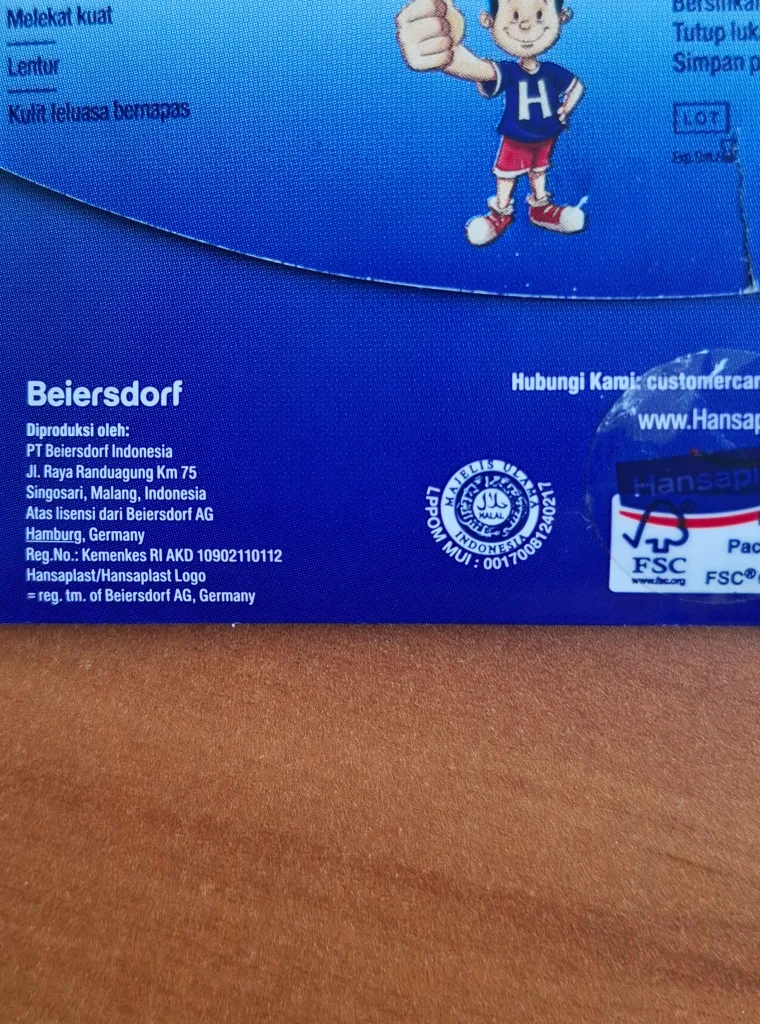
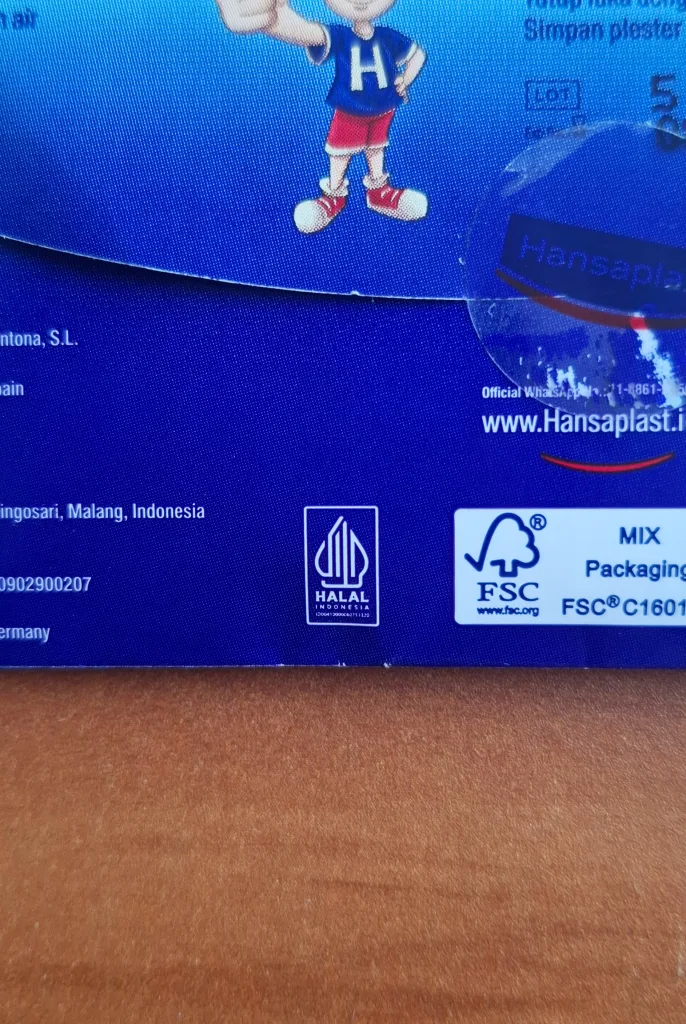
How INSIGHTOF Consulting Indonesia Can Help
INSIGHTOF Consulting Indonesia provides comprehensive regulatory assistance for medical devices in Indonesia, including:
- Medical Device Registration with the Ministry of Health (Kemenkes RI)
- Halal Certification Support for medical devices and related products
👉 Contact us today to ensure your products are legally registered and fully compliant with the latest Indonesian regulations.
Do you need assistance registering your product in Indonesia?
Contact us today to start your registration process.

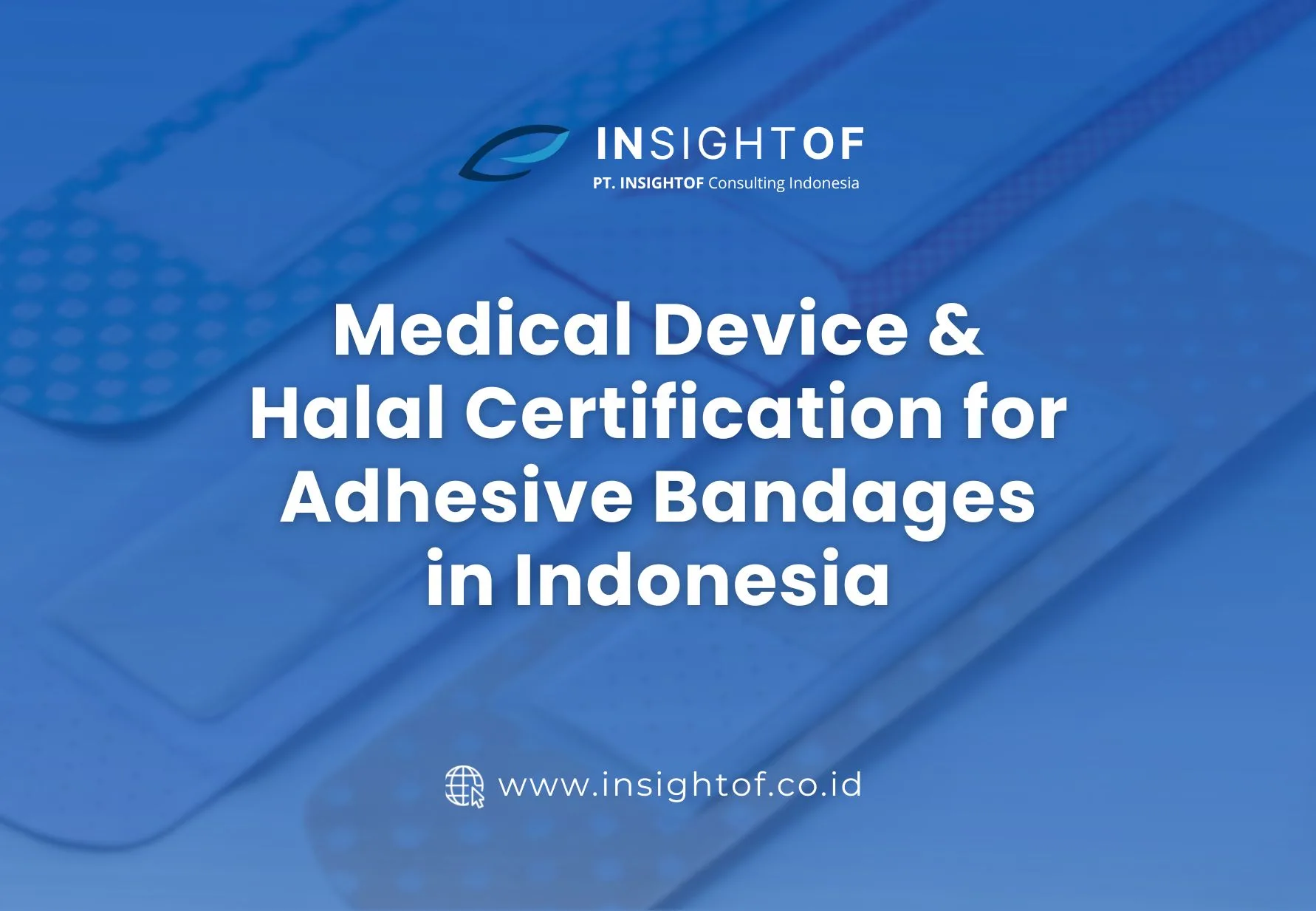

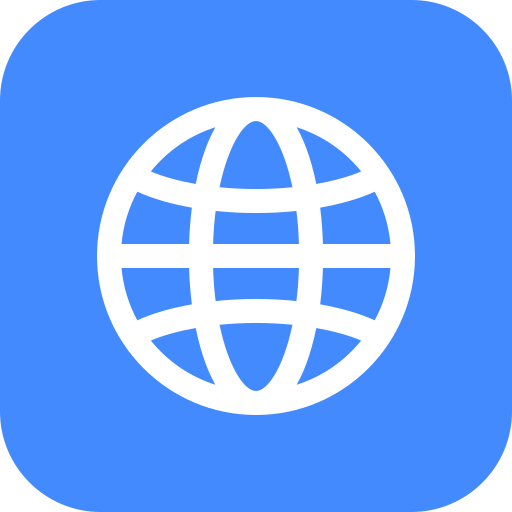
.svg/240px-YouTube_social_red_squircle_(2017).svg.png)
